EVENT ORGANISERS - SAFETY & APPROVAL
SUPPORT | INSURANCE | NEWS | SAVINGS | COMMUNITY
Button
Event Organisers - Safety & Approval
Event Approval
The following process applies to Level 4 and 5 events, as defined in the Paddle Scotland Event Definitions. This includes events organised by Paddle Scotland Discipline Development Groups across all disciplines, as well as Paddle Scotland sanctioned events organised by affiliated clubs on behalf of Paddle Scotland Discipline Development Groups.
Paddle Scotland recognises the significant work carried out by volunteers in organising many events each year. The tasks below are intended to better support volunteers and to ensure Paddle Scotland fully complies with the requirements of British Canoeing Event Safety procedures, data protection legislation, membership rules, UK Anti-doping code (where applicable), insurance and that the Paddle Scotland brand is promoted and protected.
Event Approval Process
- Normally at least 2 months before event: Event Organiser to complete Event Approval Form. The Event Organiser needs to identify:
- The type of event: Paddle Scotland Sanctioned Event (Level 4) or Paddle Scotland Event (Level 5)
- Event Safety Officer (ESO);
- for a Level 4 event, the ESO is the club safety officer and reports to the relevant discipline Committee ESO
- for a Level 5 event, the ESO is the Paddle Scotland Discipline Development Group Committee ESO, or a member of staff
- Event Safeguarding Officer for any event involving under 18s
2. Event conditionally approved
3. Paddle Scotland staff add the event in JustGo and publish it in our calendar of events , plus Facebook (if requested)
4. Normally at least 1 month before the event: Event safety documents (see below) sent to events@canoescotland.org to be filed.
5. Event Approved
-
Safety Documents
Duty of Care
Anyone promoting and offering sporting and adventure training opportunities have a duty of care to look after all persons involved - whether they are participants, coaches, support staff, volunteers or observers and to ensure, so far as is reasonably practicable, their health safety and welfare.
This duty encompasses all persons who might be associated with activities whether sport or social related, such as participants, spectators, coaches, instructors, volunteers, contractors, visitors and guests and also members of the public. It is important to note that associated activities, such as socials, fundraising events, prizegivings are also covered by a duty of care.
Risk Assessment and Safety Management Plan
It is a requirement that the organising body (SCA) holds copies of the Event Risk Assessment and Safety Management Plan. These documents should be received by the SCA staff at least 1 month prior to the event.
SCA Sanctioned Event (Level 4): the Club/Event Safety Officer carries out the Risk Assessment and Safety Management Plan and forwards them to the SCA Committee ESO for sign off. The SCA Committee ESO checks that the Risk Assessment and Safety Management Plan have been completed and then forwards these documents to events@canoescotland.org.
SCA Event (Level 5): SCA Committee ESO completes the Risk Assessment and Safety Management Plan and emails these to events@canoescotland.org
Once these documents have been received the event has Approved status and is authorised to take place.
The periodic auditing of Event Risk Assessments and Safety Management Plans will take place across different disciplines and different types of event. The purpose is to share best practice between committees / events, to continually improve processes and procedures regarding the running of SCA events and to support the volunteers involved in organising events.
Safety Management Plan
This information can normally be put together quite succintly and doesnt need to be an enormous task. The SMP should include the following information:
1. Chain of command - who will report to whom in the event of an emergency?
2. Communication systems and technology - The communication technology used (mobiles, radios, satellite phones, etc.) should be relied upon to work at the venue.
3. Emergency response information should be documented, and readily available in the event of an emergency that requires external assistance. Information should include:
- Communication and contact details
- Escape route and location information
- Participants lists
- Medical forms
- Transport details
4. Emergency procedures - emergency procedures should be been developed and documented, for serious injury or fatality, serious threats to personal safety from high-risk environmental conditions (e.g. flood, storm, fire, etc.), lost participants and behavioural management problems.
The emergency procedures should include (as applicable):
- Priority of tasks; immediate, second, third
- Roles and responsibilities
- Exit routes, emergency and evacuation procedures
- Contact details for base camp, and program administrators as required
- Contact details for police, rescue and medical services in the area
- Communication modes and protocols
- Location management
- Vehicular / Boat / Helicopter access
- Identification of nearest medical facilities
- Identification of natural hazards and appropriate response (as required)
- Post incident management; contact of insurer, legal procedures, post incident trauma, counselling?
-
Event Entry and Promotion
Event Entry arrangements
Entries being taken by the SCA on JustGo
If the SCA is processing bookings on JustGo, the Event Organiser can request an update or list of entries at any point by emailing events@canoescotland.org. Final entry list will be sent to the Event Organiser as soon as possible after entries have closed.
Entries being taken by Event Organiser via another recognised platform
If the organiser is taking entries directly, they should make sure the SCA privacy notice is referenced on the entry form/booking information. Alternative entry systems must be agreed in advance with SCA staff to ensure we meet our obligations for data protection, insurance, financial management and customer service.
Prior to the event, the Event Organiser is invited to send the list of participants to SCA for membership checking, as soon as possible after entries have closed. This will mean the organiser won't need to check those cards on the day. Otherwise, the responsibility rests with the Event Organiser to check all memberships on the day of the event. Any late entries or on-the-day entries will require the checking of membership cards by the organiser.
Day/Event Membership
Some events are open to non-members by buying day/event membership. Day/Event memberships should normally be purchased via the event page on JustGo, even if regular entries are being processed on another platform. SCA staff will give the Event Organiser the event link to direct people to buy Day Membership.
The suggested text for pre-event information is....
"Non-SCA members will be required to purchase Day/Event membership for this event. Where possible, please purchase this in advance. Visit www.canoescotland.org and register/log in to JustGo. Find the event in the Events calendar and follow the instructions. Day membership is £5 and can be redeemed against Full or Junior SCA membership for up to 12 months after the event."
If your event will accept on the day entries for day/event membership, we will keep the online link live. Those purchasing day/event entry online will receive a real-time email to confirm. Please do not collect cash or paper based day membership forms.
SCA Website
Published events can be found on the calendar. Email events@canoescotland.org for any changes to the event.
-
Event Approval Form
The event approval form asks for information such as:
- Start Date (and End date if applicable)
- Event title and discipline
- Name and contact details of Organiser
- Name and contact details of Welfare Officer (if event is open to under 18's)
- Name and contact details of Event Safety Officer – who will have completed BC Event Safety Training
- Booking/entry process
- Participant criteria
- Venue
- Details of any SCA resources/equipment to use at the event? e.g. marquee, bibs, banners, chairs, hi viz vests
- Any additional information
- If the SCA is processing bookings, when it should open and close for bookings
There are a number of things that we need to know in order to approve, publish and promote an event. This form asks for details to help us process the event and publish it in good time.
After the event
Results of competitions and the list of participants at recreational events should be sent to events@canoescotland.org for publication and/or filing as soon as practical.
Photos and articles for the website and Scottish Paddler are welcomed. A copy of the event incident log, if any reportable incidents have occurred should also be sent to
events@canoescotland.org for filing and reporting to the Paddle Scotland insurers as appropriate. Any incidents should also be reported to Paddle UK.
Useful links / resources
- Safety - Paddlesafer
- Event Safety Management Workshop
- Generic Risk Assessment - Example
- Safeguarding Policies
- Event Welfare Officer description
- British Canoeing Risk Assessment eLearning
- British Canoeing Safety Alerts & Case Studies
- Major Incident Response Plan
- Photo Consent Form
Example events
To help understand the different format options for online event entry and day/event membership, please refer to the following example events:
- Example 1 - Paddle Scotland sanctioned event (Level 4) with bookings but not payments via JustGo
- Example 2 - Paddle Scotland sanctioned event (Level 4) with only day/event membership via JustGo and bookings via a recognised third party system
- Example 3 - Paddle Scotland event (Level 5) with bookings and payments via JustGo
Event Safety - Training Workshop
We run these workshops periodically. Please check our Events Finder for news on the next one.
The focus of the workshop is to raise awareness of safety management and duty of care issues as they effect clubs, both in their normal everyday activities (closed activity) and also when they may engage in running events open to others.
The workshop provides guidance and support to mitigate responsibilities using the concept of an ‘event span of control’ to bring simple well organised solutions that people can understand and apply during even the most complex process.
As an outcome to the workshop attendees cover:
- Duty of Care
- Reasonable Action - In line with risk, experience, frequency
- Risk Assessed Activity - Regularly reviewed
- Practices and Procedure - Simple and Clear
- Documented Procedures - Evidence based procedures
- Appointed Persons - Against experience matrix
- Review / Update
During the course participants;
- Consider the five stages of event planning
- Consider the relationship between those stages & safety management
- Develop & share experiences
- Consider centralised resources
- Consider application against experience through scenario based training.
As an outcome we hope to achieve:
- Common methods for managing risk
- The use of an event checklist for safety management
- Greater appreciation of the need for span of control
- Develop the use of ‘CALM’ in dynamic risk management








